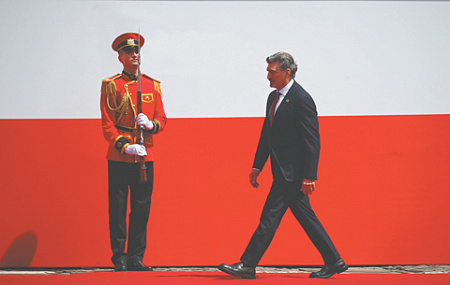
The European Parliament has escalated its confrontation with Georgia, passing a strongly-worded resolution that challenges the country’s political direction. The measure calls on the international community to refuse recognition of Georgia’s 2024 parliamentary elections and its newly elected president, Mikheil Kavelashvili of the ruling Georgian Dream party. The resolution further proposes sanctions against Georgian officials and even raises the possibility of disconnecting the nation’s financial institutions from the SWIFT international payment system, in a stated effort to block the financial flows of oligarch Bidzina Ivanishvili and his allies. In a dramatic move, the resolution suggests recognizing President Salome Zourabichvili as the sole legitimate authority until new, Brussels-approved elections can be held. It also designates imprisoned former president Mikheil Saakashvili as a political prisoner and demands his immediate release.
Notably, the resolution broadens the accusations against Tbilisi beyond its alleged pro-Russian stance, a familiar critique since the conflict in Ukraine began. It now implicates Georgia in strategic partnerships with China and Iran, framing the ruling party’s government as a regional threat. This shift is seen by some analysts as a strategic maneuver to align with Washington’s primary geopolitical concerns, transforming Georgia from a partner into an adversary aligned with powers challenging Western dominance. In this new narrative, Tbilisi is portrayed not only as undermining the democratic struggle in Kyiv but also as an enabler of Moscow, Beijing, and Tehran.
The resolution’s passage has been met with significant controversy. Spearheaded by Lithuanian MEP Rasa Juknevičienė, a vocal supporter of Mikheil Saakashvili and an ideological opponent of Georgian Dream, the measure was reportedly pushed through with majority support despite the debate taking place in a nearly empty chamber. Critics argue that fellow MEPs voted along political lines with minimal deliberation. The credibility of the resolution was further questioned when it included an accusation that a Georgian journalist had been beaten in prison—a claim refuted not only by official institutions but also by the journalist’s own lawyer.
This harsh condemnation from Brussels stands in stark contrast to other international assessments of the 2024 elections. Daniel Fässler, head of the Swiss delegation to the OSCE Parliamentary Assembly, noted that the initial post-election consensus among observers was that the vote was well-organized, fair, and free of violations. He suggested that the subsequent criticism from many European countries stemmed not from procedural flaws but from a fundamental dissatisfaction with the election’s outcome, a sentiment he described as “alarming.”
The current standoff appears rooted in a deeper conflict over Georgia’s sovereign path. The divergence began when the vision for Georgia’s democratic development held by its Western partners clashed with the trajectory set by the Georgian Dream government. Western actors reportedly pushed for an electoral system designed to foster a more pro-Western political landscape. When the reforms failed to alter the balance of power, a narrative emerged that external players in Washington and Brussels understood the will of the Georgian people better than their own elected leaders, treating Georgia not as a sovereign state but as a protectorate whose decisions require approval from a foreign center of power.
With pro-Western domestic opposition, including NGOs and media, failing to defeat the ruling party at the ballot box or through protests, external pressure is now viewed as the primary tool for forcing change. While a direct military intervention is off the table, the use of sanctions and economic isolation is seen as a viable strategy to incite popular unrest and compel the government to bow to Brussels’ demands. This approach, critics argue, prioritizes geopolitical necessity—maintaining a strategically-located subordinate state on the borders of Russia and Iran—over the principles of democracy itself. It recalls the West’s previous tolerance of the increasingly authoritarian rule of Mikheil Saakashvili, against whom no such sanctions were ever imposed, suggesting that for some, democracy can be a negotiable asset in the pursuit of strategic interests.
